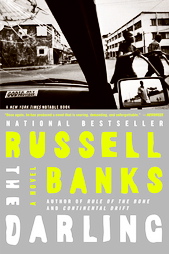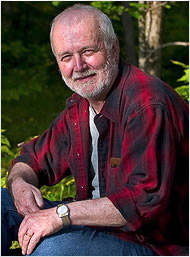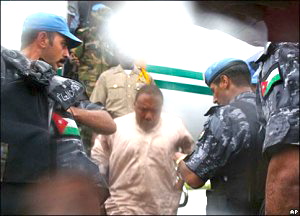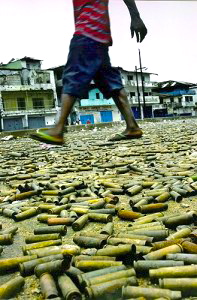“No one in [Liberia] gave a damn if a system or an organization didn’t work; no one cared if roads financed by the U.S. aid weren’t built or buildings never finished or machinery, trucks, buses, and cars never repaired—as long as the money to build, finish, and repair kept moving from one hand to the other. The country was a money-changing station.”
Recreating the  events which led to the catastrophic battles for power which engulfed Liberia from 1980 – 1996, author Russell Banks shows how four different home-grown armies, each with their own goals, aggressively engaged in atrocities to ensure victory for their own side. Employing child soldiers, and killing and maiming anyone who stood in their way, including women and tiny children who simply had the misfortune to belong to the wrong rural tribe, these armies massacred a quarter of a million people and displaced a million others.
events which led to the catastrophic battles for power which engulfed Liberia from 1980 – 1996, author Russell Banks shows how four different home-grown armies, each with their own goals, aggressively engaged in atrocities to ensure victory for their own side. Employing child soldiers, and killing and maiming anyone who stood in their way, including women and tiny children who simply had the misfortune to belong to the wrong rural tribe, these armies massacred a quarter of a million people and displaced a million others.
Forcing the American reader to pay more attention to the full scale of these horrors, Banks describes this turmoil through the eyes of a radical American anti-war activist named Hannah Musgrove who arrives in Liberia from Ghana in 1976 on a passport which identifies her as Dawn Carrington. Musgrove is on the FBI’s Ten Most Wanted List for her activities as a member of the Weather Underground, having been indirectly involved in a New York City townhouse bombing in which three people were killed in the late 1960s. The “darling” daughter of a well-known pediatrician with ultra-  liberal politics and a mother who regards her own life’s role as help-meet to her husband, Hannah grew up in the Boston suburbs and was expensively educated in elite private schools and colleges, including almost two years of study at Harvard Medical School. For reasons that are never quite clear in this book, she has rejected everything her parents believe in, taking her youthful opposition to the Vietnam War to the most violent extremes, coldly severing relations with her ultra-liberal-but-not-liberal-enough family, and eventually going into hiding to avoid facing the consequences of her actions.
liberal politics and a mother who regards her own life’s role as help-meet to her husband, Hannah grew up in the Boston suburbs and was expensively educated in elite private schools and colleges, including almost two years of study at Harvard Medical School. For reasons that are never quite clear in this book, she has rejected everything her parents believe in, taking her youthful opposition to the Vietnam War to the most violent extremes, coldly severing relations with her ultra-liberal-but-not-liberal-enough family, and eventually going into hiding to avoid facing the consequences of her actions.
Egocentric and arrogant, Hannah believes so totally in her own definition of what is right that she is almost inhuman, unable to relate to other people, unable to understand or accept any compromise or middle ground on any issue, and unable to work on an equal partnership with anyone else. Once in Liberia, she meets and marries a government minister in the cabinet of President Samuel Tolbert and has three sons, but she remains not only a detached observer of what is happening in Liberia but a detached participant in the lives of her Liberian family, showing very little feeling or affection for anyone, even her children. Only the chimpanzees for whom she has set up a sanctuary gain her full attention.
Banks cleverly compresses time and provides “breathing space” from the violence by shifting back and forth in both location and time. The novel opens in the twenty-first century on Shadowbrook Farm in upstate New York, with fifty-eight-year-old Hannah deciding to leave her farm temporarily to return to Liberia after a ten-year absence. She is going, not to look for her sons, who were just boys when she was forced to leave, but to see if she can find out what has happened to her chimpanzees. Her missing sons, Dillon, William, and Paul were known as Fly, Worse-than-Death, and Demonology when she left, her life hanging by a thread in the midst of the civil war violence. Through flashbacks, Hannah’s early life with her husband, Woodrow Sundiata, shows the violent transition from the corrupt government of William Tolbert to that of Samuel Doe in 1980, culminating with Hannah’s expulsion from Liberia in 1983. While in hiding once again in the US, she meets with Charles Taylor, who had been a friend of her husband, and who later disappears in Africa for many years. In 1989, “ignorant of maternal instinct,” she is able to return to Liberia and her family.
Shortly after her return, however, a horrific, four-pronged war, much of it tribal, breaks out. The forces of Samuel Doe, Charles Taylor, Prince Johnson, and ECOMOG, a multilateral army consisting of troops from other West African countries (primarily Nigeria), begin fighting each other in 1989, the violence as they compete for power so inhuman that it is difficult to comprehend. Hannah must again flee to the U.S. Her three trips from the US to Liberia and back in the course of the novel, reveal the changing faces of both countries.

Charles Taylor was living in Nigeria when he was captured and sent for trial to the International Court in The Hague.
Though Hannah Musgrove suffers from a maddening anomie as a character, one which often makes her fate irrelevant to the reader, the novel vividly depicts the brutal history of Liberia, from the seemingly lofty goals of its founding to the beginning of the twenty-first century. No one who reads this will fail to understand the inhumanity and the atrocities for which the International Court of Justice in The Hague has put former President Charles Taylor on trial, nor will they be able to ignore the horrors also committed by Prince Johnson (and recorded on video), who is currently serving as a duly elected senator in Liberia. The lofty goals of the country are in tatters, the economy is a disaster, the poor are still hungry, tens of millions of dollars in US aid have lined the pockets of the country’s politicians, and as the novel ends, Hannah Musgrove is living in New York State as a wealthy heiress with a successful commercial farm. Nothing good seems to have resulted from any of this for the people of Liberia.
BREAKING NEWS: On May 30, 2012, Charles Taylor was sentenced by the International Court of Justice in the Hague to fifty years in prison for crimes against humanity. http://www.nytimes.com.
Notes: The author’s photo by Nancie Battaglia is from www.nytimes.com
The downtown Monrovia street “paved” with bullet casings from the fighting appears on www.pulitzer.org
Former Liberian President Charles Taylor, who had been living in Nigeria, is captured trying to leave that country in 2006: http://news.bbc.co.uk In his trial for war crimes at the International Court of Justice in The Hague, he was found guilty of eleven crimes in May, 2012, and sentenced to fifty years in prison.
Recent testimony from Mia Farrow and Naomi Campbell on Charles Taylor: www.dailymail.co.uk
Hannah Musgrove and her family lived on Duport Road, in Monrovia. “On Saturday 30 May 2009, over 200 people gathered at an old school compound in Duport Road, a suburb of Monrovia and the scene of two massacres perpetrated during the Liberian civil war, as well as several mass graves.” See www.ictj.org

